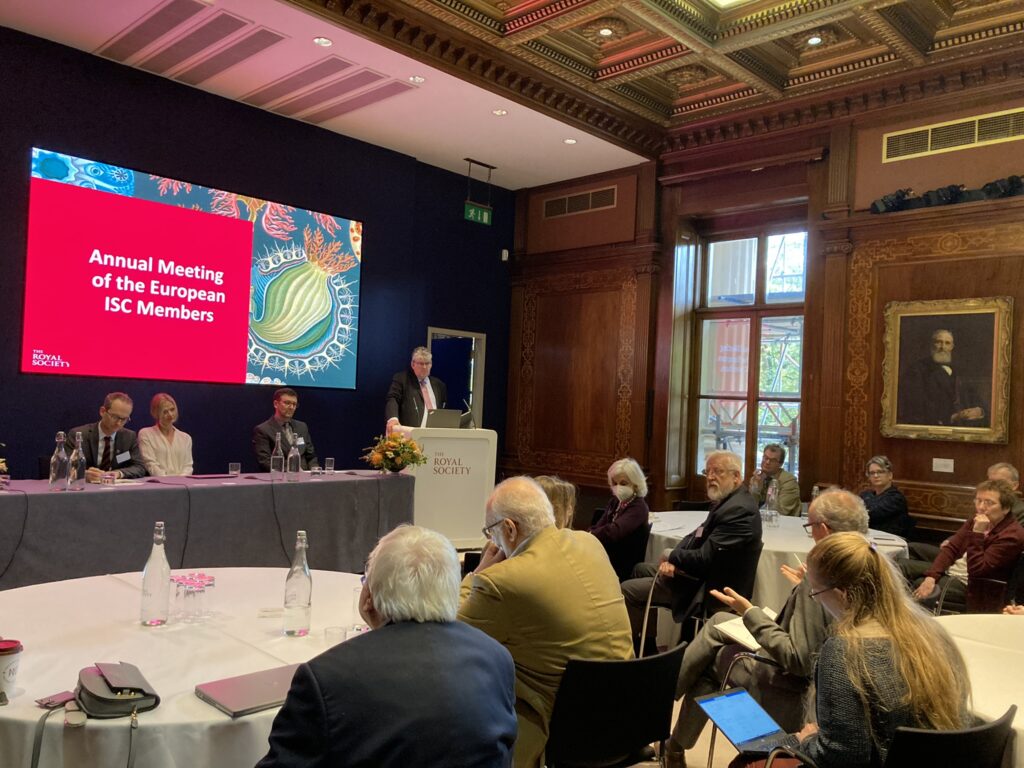Estonian Academy of Sciences Yearbook 2022, 86-87:
„The International Science Council (ISC) is a global science organisation that brings together research
unions and associations, national academies and other representative research organisations. The main aim of the Science Council is to express and amplify the voice of scientists in matters concerning global public wellbeing.
Supported by its members and numerous international partner organisations, the Council takes part in shaping international research policy and promotes the provision of scientific advice and knowledge-based policy-making. In 2021, the Estonian Academy of Sciences was elected as the chair of the European members of the ISC for three years (2022–2024).
During Estonia’s presidency, the main activities of the network of the European ISC members are focused
around three circles of topics. First, representation of the interests of European research institutions and researchers in the global ISC organisation. The activities of this science organisation have considerably expanded and the management of the organisation has also been replaced.
Although the European members make up nearly a quarter of the member organisations of the global ISC, they are not proportionately represented in the new management of the ISC. One of the tasks of the European members’ network and its Secretariat in Estonia, therefore, is to draw attention to the viewpoint and requirements of European research in the global ISC organisation.
The second important circle of topics is the promotion of science advice and knowledge-based policy-making in Europe, primarily by supporting the development of the structures necessary to enable this. The network of research organisations incorporates the best knowledge and helps find the best new practices for solving the challenges in the provision of scientific advice by sharing experience,
holding public discussions and engaging in research cooperation. The need for more permanent scientific advice structures with a prompt response capability and interdisciplinary competences is also growing at European Union level.
The third area of activity in the work of the European ISC members is the development of research diplomacy and international research cooperation. This includes the improvement of the level of overall knowledge, as well as practical activities where the aim of research cooperation is to support relationships between countries or regions or to contribute to the development of research and innovation with the help of diplomacy.
All three topics were discussed at the Annual Meeting and science seminar held in London on 12 and 13 October together with the Royal Society. The improvement of scientific advice, crisis preparedness and international research cooperation were discussed by various top European scientists, scientific advisers to governments and representatives of academies, including Paul Monks, Chief Scientific Adviser at the UK Department for Business, Energy and Industrial Strategy (BEIS); Marco Sacchi, Royal Society University Research Fellow in Computational Surface Science, Materials Modelling and Quantum Biology; Robin Grimes, the UK Ministry of Defence Chief Scientific Adviser on nuclear science and technology matters
and Professor of Materials Physics at the Imperial College London; and Tarmo Soomere, President of the Estonian Academy of Sciences and Chair of the European ISC.”
